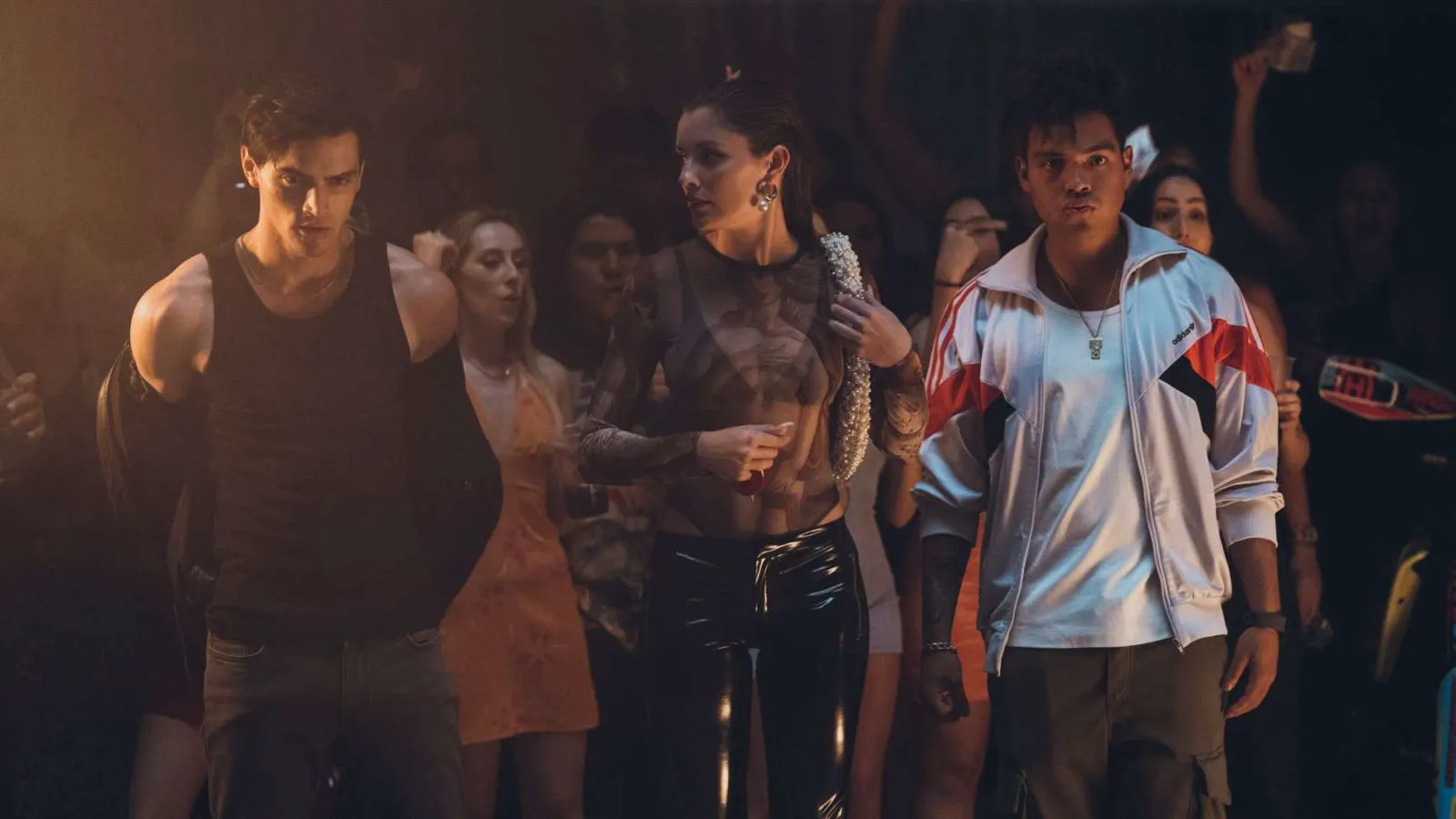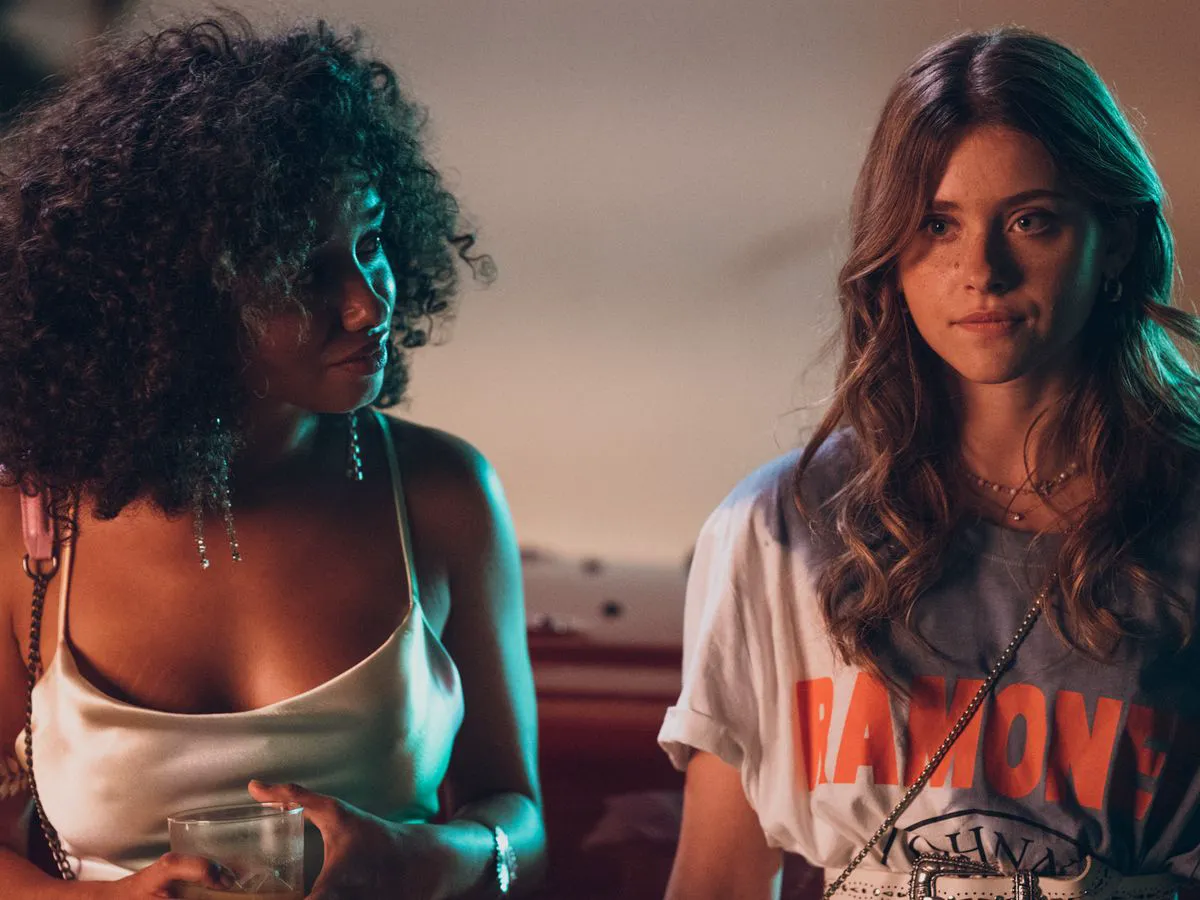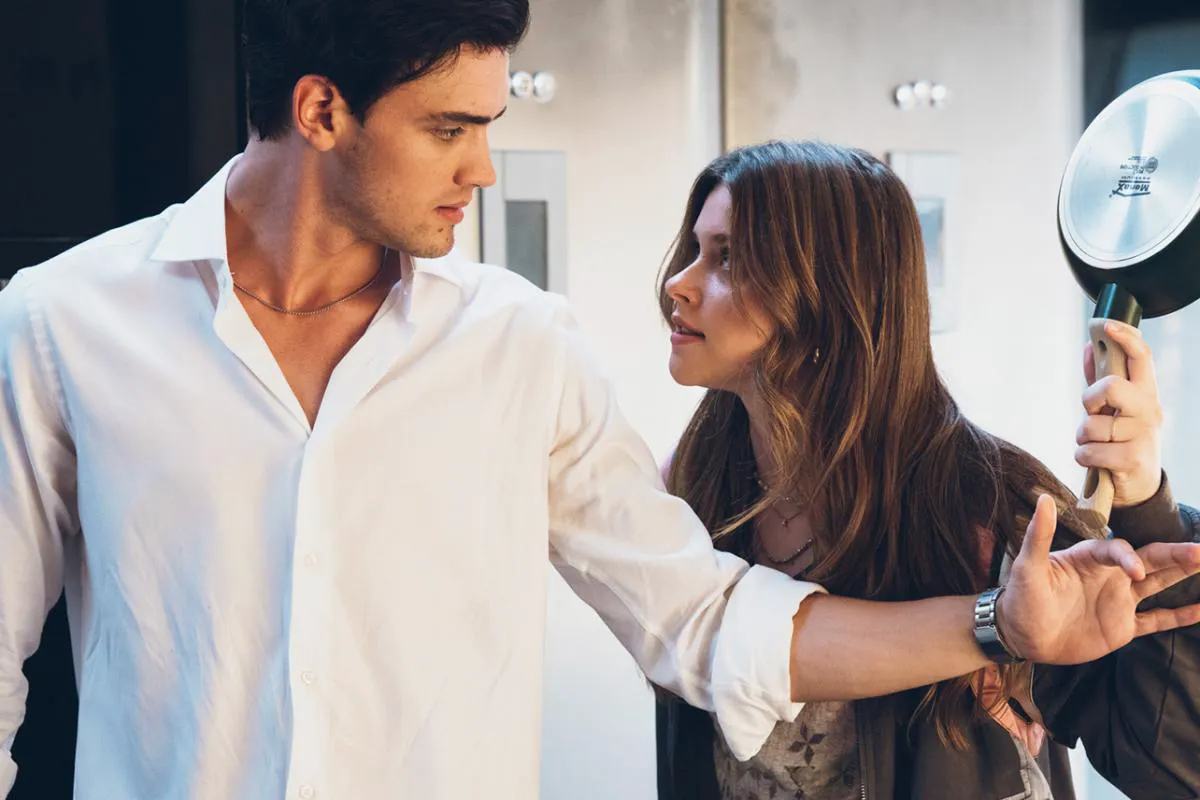The young adult franchise “After” hadn’t even finished its run before a local replacement arrived: the Italian film “My Fault” (“Culpa Mía”). The plot is based on the series of novels by Mercedes Ron, and considering that the third book, titled “Our Fault,” is set to be released in 2023 (with “Your Fault” in between, as one might guess), Amazon Prime has committed to producing sequels for years to come—especially given the massive viewership it garnered in just one week after its premiere.

Gabriel Guevara as Nick in a still from “My Fault”
Domingo González’s debut film, who, incidentally, worked on the editing of the well-known “Perfect Strangers,” will raise eyebrows with its synopsis alone—in equal measure of surprise and curiosity (we haven’t heard anything like this before). The plot revolves around 17-year-old Noah, whose mother marries a handsome Italian millionaire and takes her daughter with her to his luxurious mansion. But neither the servants in the house, nor the picturesque landscapes, nor even the new designer wardrobe impress the girl. Moreover, she is not just unimpressed, but terribly annoyed by her newfound stepbrother, Nicholas. For the time being, of course—because being a step-sibling doesn’t imply incest, does it?

Nicole Wallace as Noah in a still from “My Fault”
It seems the characters grew up in an era when “Game of Thrones” had already taken the world by storm, and the experience of Cersei and Jaime Lannister’s passionate sibling co-dependency could have taught them something, but no. In addition, it turns out that both Noah and Nicholas have their dark secrets. In Noah’s case, it’s the consequences of trauma inflicted by an abusive father. In Nicholas’s case, it’s the consequences of his mother’s absence in his life. But no one is Ari Aster except Ari Aster himself, capable of so beautifully and unconventionally justifying someone’s neuroses with old Freud. And in the case of “My Fault,” the film would only have benefited if, instead of anonymous threatening notes that Noah receives in the plot, there were numbers of good psychotherapists.

Nicole Wallace as Noah in a still from “My Fault”
As therapy, there is “forbidden” love, which by the finale helps everyone become better versions of themselves—in just a few weeks, this incredible attraction heals the childhood traumas of both. And if in the era of “Twilight” it was still possible to mask Karpman triangles with a soundtrack from Muse and vampires sparkling in the sun, then in our time this will no longer work. “You don’t need kisses, you need volcanic eruptions in your mouth,” Nicholas whispers in Noah’s ear. No, Noah, you need prolonged and intensive work with family patterns so as not to fall for beautiful words and appearances, behind which another abuser may be hiding, who just a couple of scenes before aggressively grabbed you by the hands. But only time and two sequels will tell whether this love will indeed sweep away all psychological barriers and become a cure, not a co-dependency from which there is no escape, since the first part does not provide in-depth analysis, but only introduces the characters.
The film fails to keep up with the times for many reasons. Noisy alcoholic sex parties are more millennial than Gen Z. And the underground races and fist fights that all the city’s youth are so passionate about might have interested James Dean’s characters, but not those born in the late 90s and early 2000s. But, as in “After,” they didn’t forget about advertising condoms and safe sex—even if it happens on a sandy beach (which, like the characters’ passionate attraction to each other, is romantic only in words, but in reality, cleaning up the consequences of a few pleasant moments from your most vulnerable places will take much longer).